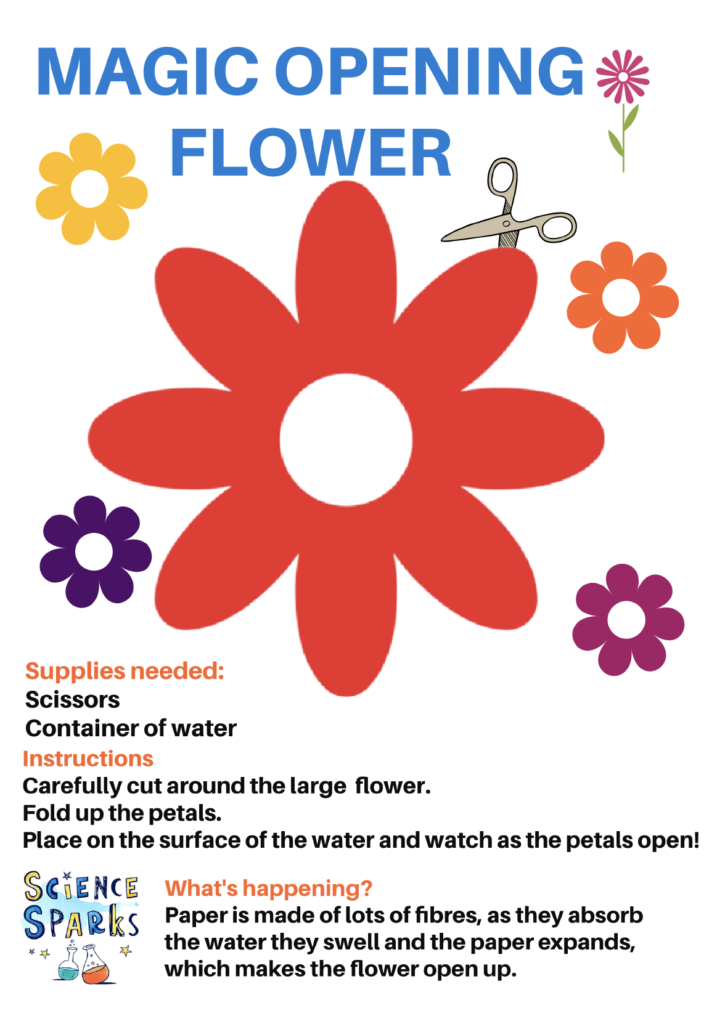One of my aims with Science Sparks is to make science as accessible as possible to kids and parents of all ages. I try to keep all the experiments as simple as I can, but the list of materials can often mount up and be a little overwhelming. With that in mind, I’ve compiled a list of my favourite two ingredient science experiments to make science at home easier than ever!
Some of the activities need tape or scissors, which I haven’t included in the two ingredient limit.
Two ingredient science experiments
Rocket Mouse
To make a rocket mouse you’ll need:
- Empty milk container
- Paper
Extras – sellotape
Make a cone shape from the paper, pop the cone on top of the milk carton and squeeze hard. The paper cone will shoot up into the air!
Learning concepts
Gravity
Newton’s Laws of Motion
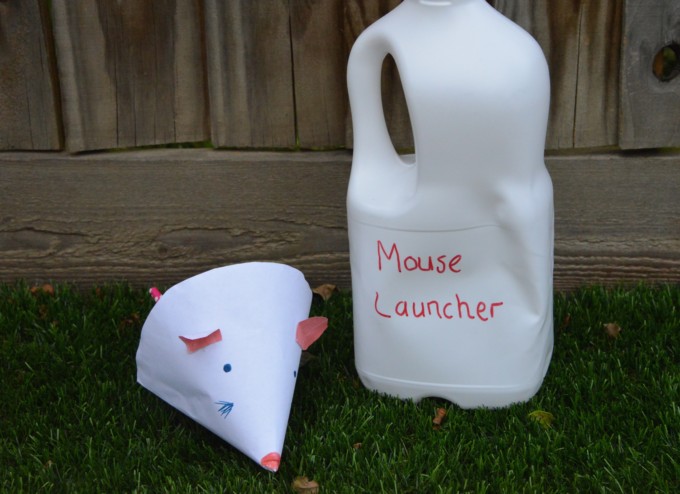
Magic opening flowers
Extras – a container or bath and scissors
All you need to make magic opening flowers is paper and water! Cut out flower shapes ( or use my handy template ), fold up the petals and place the folded flower in water.
The paper absorbs the water, opening up the flower!
This is a great science activity for learning about capillary action and transport of water.
Make a lemon sink
Extras – tall container
Learn a little science magic by making a lemon sink! This simple science activity is a fun way to learn about density, as a lemon floats because of the bubbles of air in the skin.
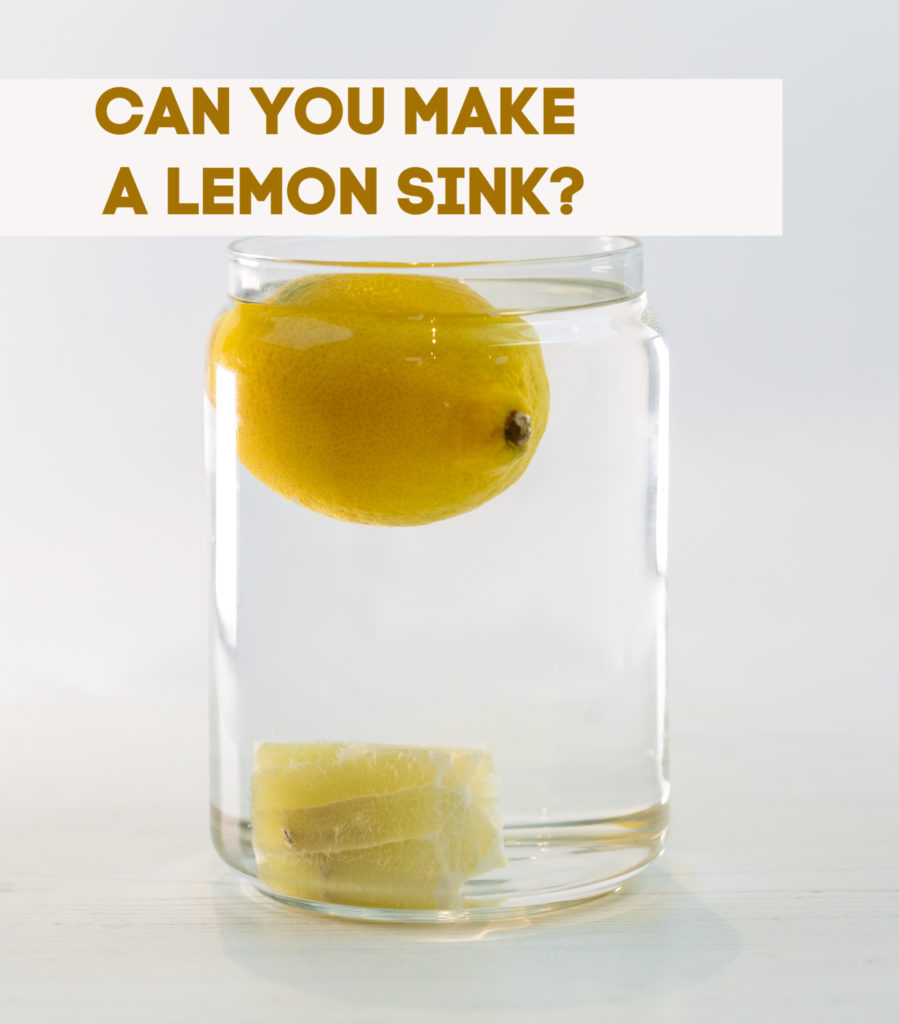
Learning concepts
Density
DIY stethoscope
Extras – tape
Make a DIY stethoscope with a funnel and a cardboard tube ( you also need some tape).
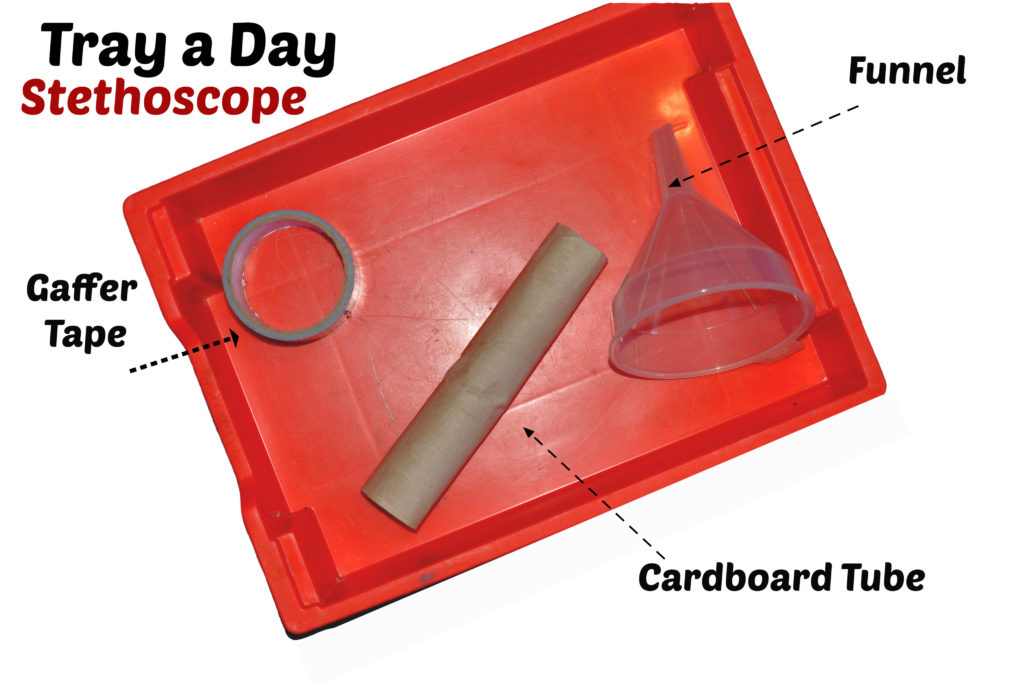
Oobleck Slime
- Cornflour ( cornstarch )
- Water
Extras – container
All you need to make oobleck is cornflour ( cornstarch ) and water. Oobleck is a really unusual substance as it is a liquid normally but a solid when pressure is applied.
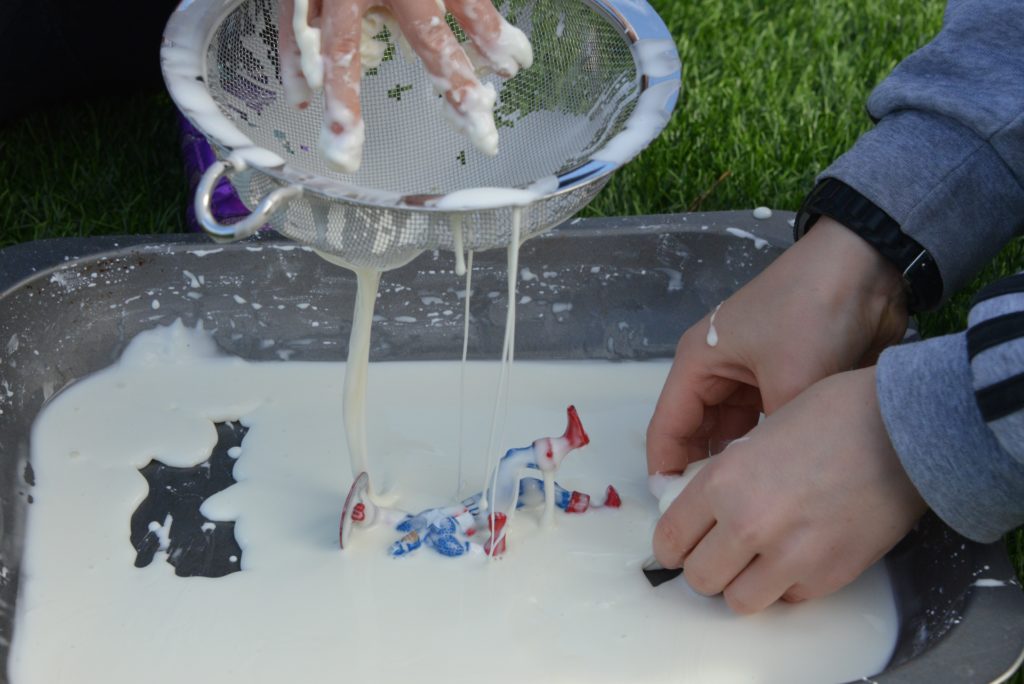
Learning concepts
Non-newtonian liquids
Skittles and water experiment
Extras – container or plate
Create a colourful pattern with skittles and water. This can be made into an investigation by timing how long it takes the colours to spread out with cold and warm water.
Learning concepts
Dissolving
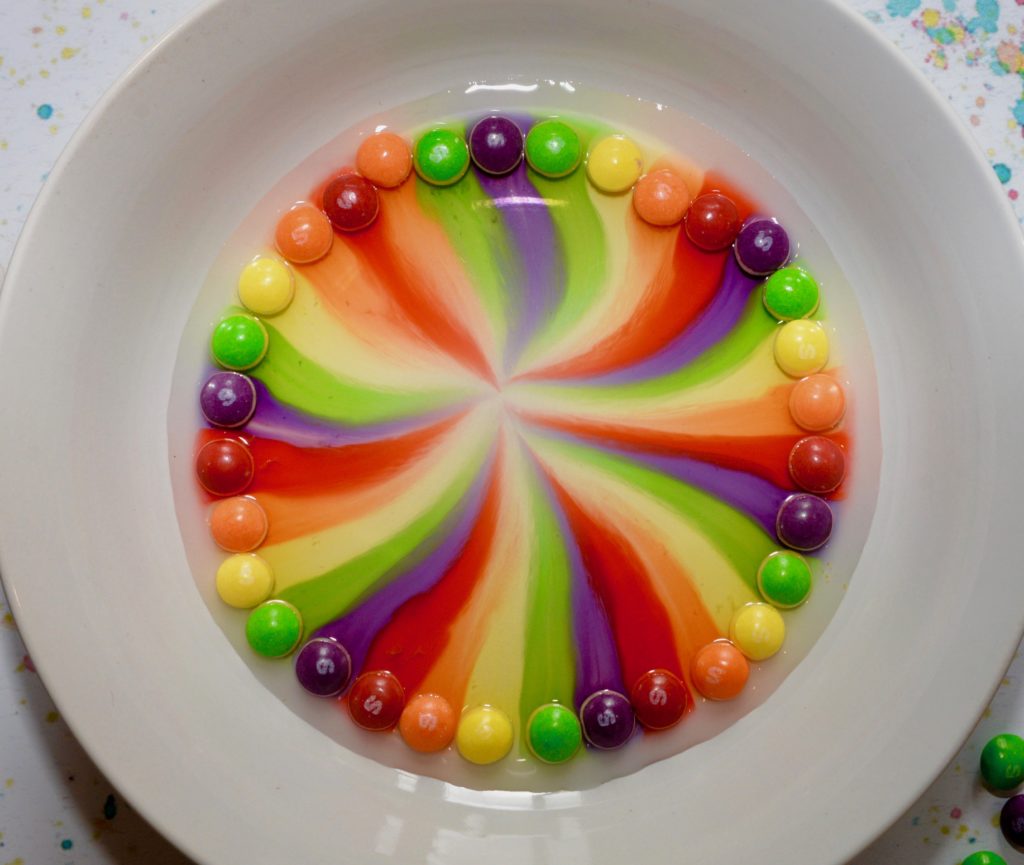
Simple density column
Extras – glass or jar
Create a basic density jar with just vegetable oil and water. This is a great first density demonstration as the less dense oil floats on the water.
Learning concepts
Density
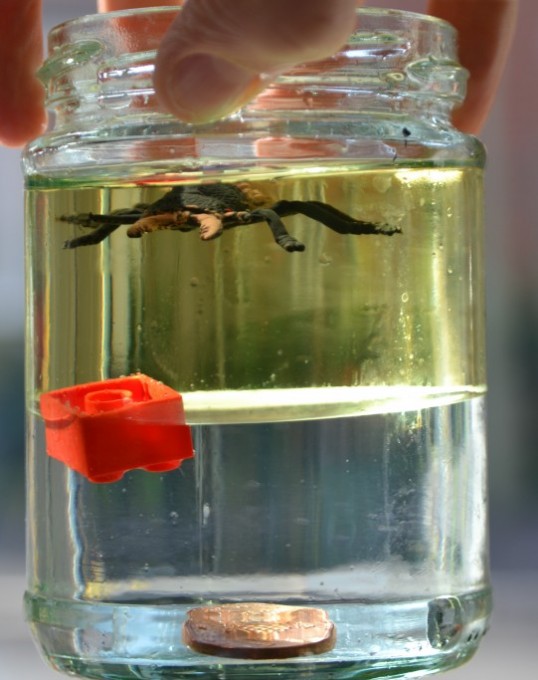
Newspaper structure
Learn about string shapes and basic engineering with rolls of newspaper and tape!
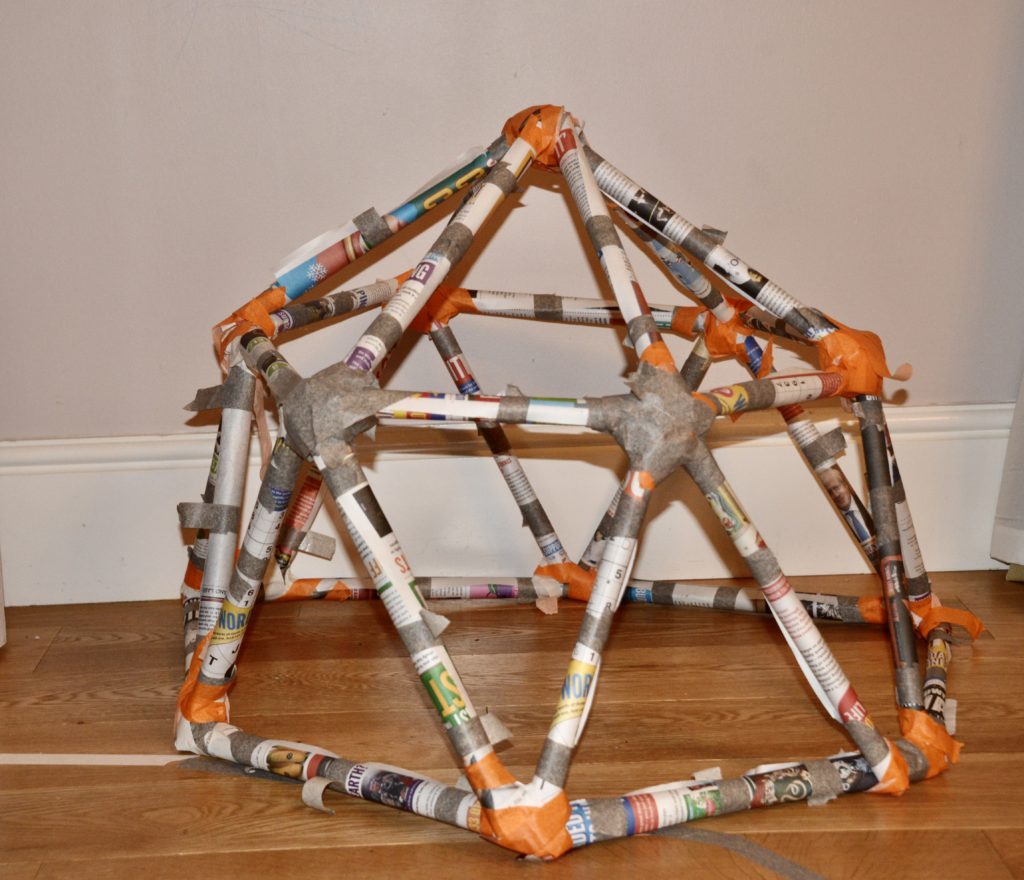
Foil boats
- Aluminium foil
- Small coins
Extras – tray of water
Learn about density with small boats made from aluminium foil. This can be made into an investigation by experimenting to discover how many coins it takes to make each boat sink.
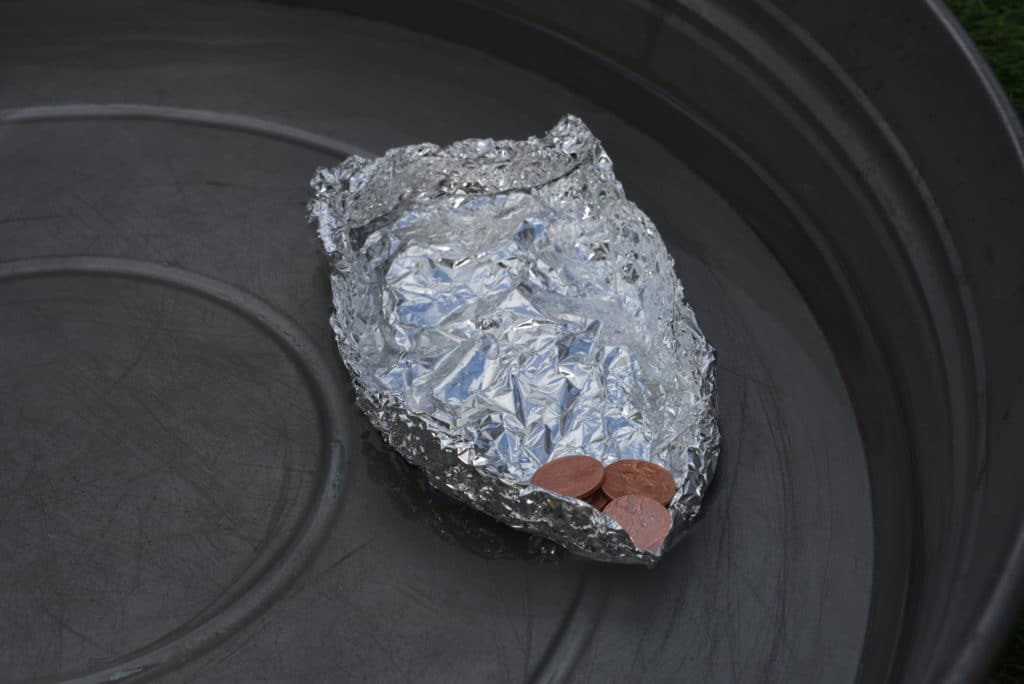
Learning concepts
Density
How strong is a paper cup?
Find out how to stand on a paper cup without breaking it with a stack of paper cups and sheets of thick cardboard.
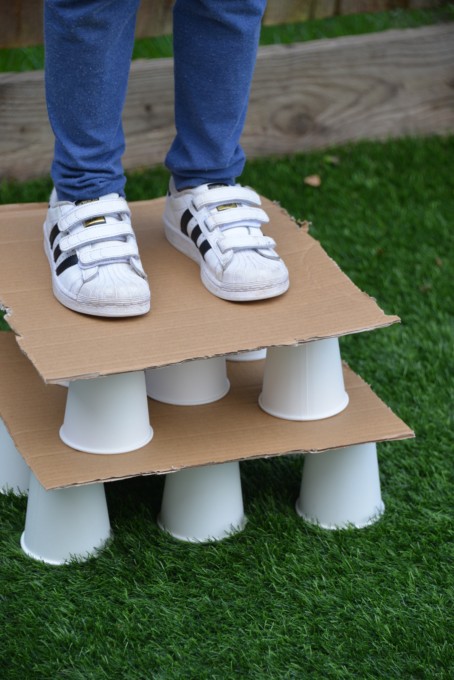
Strong straws and a potato
Find out how to pierce a potato with a straw with a simple science trick!
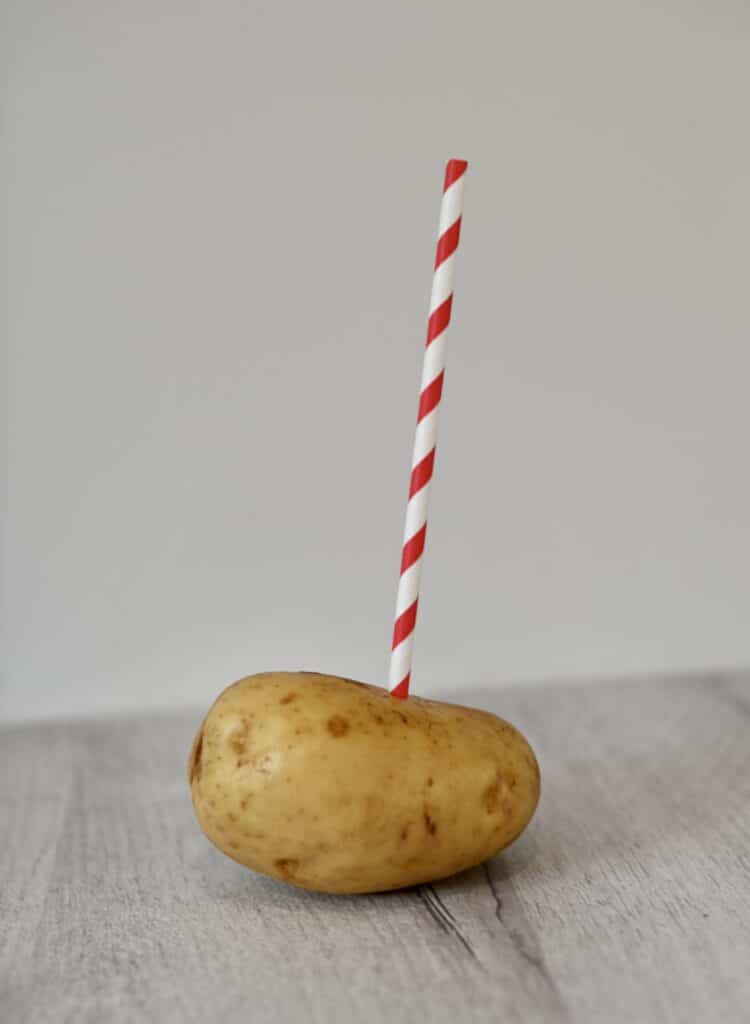
More two ingredient science experiments
Make a straw flute with just straws and tape!
Demonstrate the Bernoulli principle with an empty plastic bottle and a piece of paper.
Make a rain gauge with a plastic bottle and a ruler.
Create a sundial with a straw or pencil and some play dough!
Do you have any more two ingredient science experiment ideas to share?
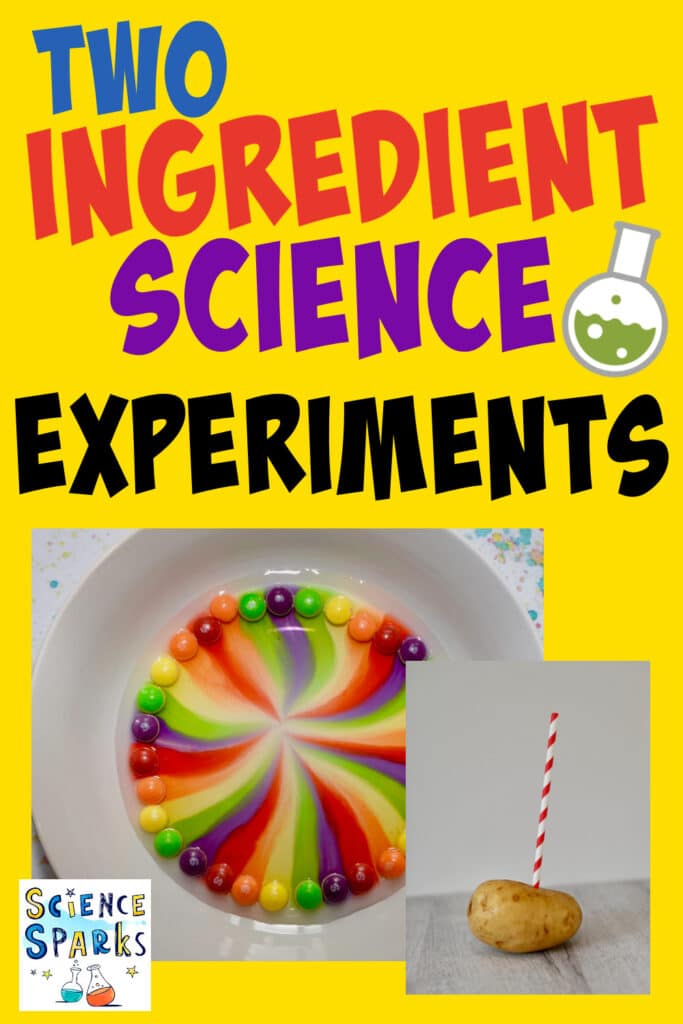
Last Updated on October 4, 2023 by Emma Vanstone

